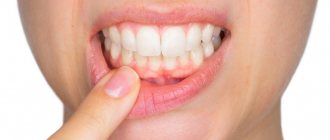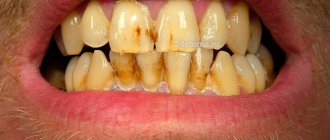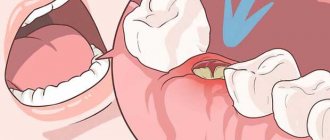The sour taste in the mouth is disturbing and unnerving. Unpleasant taste sensations in the mouth outside of food consumption are a sign of a large number of diseases.
There is such a gastronomic concept as aftertaste. And it is not always pleasant. This is a reaction to stimuli from the taste buds located on the tongue and the inner surface of the cheeks.
A sour taste in the mouth can be the result of using lemon, vinegar, and various marinades for cooking. During the period of not eating food, no foreign tastes should be felt in the oral cavity. If the aftertaste does not go away, or any additional symptoms appear, then the cause of this phenomenon should be identified.
Causes of discomfort
The taste in the mouth tells about the health of the whole body.
The reasons for the appearance of acid in the oral cavity can be both diseases of various organs and a joyful event - the onset of pregnancy.
Possible diseases that cause an unpleasant aftertaste:
- increased acidity of gastric juice;
- excess production of hydrochloric acid;
- disturbances in the gastrointestinal tract - pancreas, reflux disease;
- periodontal diseases;
- the presence of crowns or fillings made of different metals in the oral cavity - such combinations form a galvanic couple and a physical and chemical reaction of electrolysis takes place in the oral cavity;
- electrolyte imbalance;
- dehydration of the body;
- taking medications;
- impaired bile formation and liver pathology - as a result of eating fatty and heavy foods; pregnancy in the middle and late stages - the growing uterus compresses the stomach and hydrochloric acid refluxes into the esophagus and oral cavity.
All these processes are accompanied by additional symptoms. Therefore, if you regularly experience an unpleasant sensation in the oral cavity, you should undergo a comprehensive examination.
If at the same time there is pain in the epigastrium, nausea, and stool disorder, then you need to urgently contact a medical institution.
The following video will familiarize you with the causes of sour taste in the mouth:
That's the salt!
Article on the topic
Between chocolate and cucumber. What do taste preferences indicate? Most often, saliva becomes salty if a person neglects oral hygiene or simply experiences thirst, which, by the way, may not be felt. Hidden fluid deficiency often occurs due to taking medications, drinking alcohol, coffee, tea, cola, and also due to smoking. Therefore, if you experience such sensations, brush your teeth more thoroughly and drink at least 8 glasses of clean water a day. But if this doesn’t help, you need to figure it out. The causes of a salty taste may include:
infectious and fungal diseases of the nasopharynx - for example, sinusitis: mucus that accumulates in the sinuses can drain into the mouth and cause a salty taste. In this case, consultation with an ENT specialist is necessary;
diseases of the salivary glands , which develop due to the entry of streptococci, staphylococci, pneumococci into the salivary ducts. Go to the dentist!
Continued: Bad taste in the mouth, causes →
Acid and sweet
Acidity in the mouth is not a very pleasant sensation
A pure taste sensation is rare. Since there are receptors in the oral cavity for determining and analyzing various combinations.
In a pathological process, acid may predominate, but in most cases other flavors are also present. This provides additional information to find the cause of the unpleasant sensation.
Sweet and sour taste is caused by the following conditions:
- increased blood glucose levels due to stress, physical exertion;
- state of depression;
- excessive consumption of sweets;
- disruption of the gastrointestinal tract;
- liver pathologies;
- toxic effects of pesticides, gaseous chemicals;
- smoking cessation period;
- diabetes with a slight increase in blood glucose levels, a latent form of the disease;
- pathologies of the maxillofacial system, which are accompanied by purulent processes - gum disease, caries, periostitis, gumboils and abscesses.
Before contacting a doctor, you should analyze the factors that contribute to the appearance of a sour taste in the mouth.
general characteristics
From time to time, an unpleasant taste occurs in healthy people.
It can be caused by the accumulation of food particles due to insufficient oral hygiene, or the consumption of foods with a bright, rich taste. In most cases, the symptom is caused by pathological causes. A bitter taste is felt in the mouth mainly in the morning, immediately after waking up. Unpleasant sensations bother a person for several hours and do not disappear after rinsing the mouth with water. Bitterness or a feeling of sourness are accompanied by heartburn and a sore throat. In this case, the oral mucosa dries out, the saliva is viscous, and is released in smaller quantities. Sometimes patients complain of a strong chemical or metallic taste that lasts throughout the day. If symptoms appear with a certain frequency or constantly, you need to visit a specialist.
Acid and bitterness
A bitter taste indicates a disruption of the liver and bile ducts. It may appear occasionally, but may bother you regularly.
Possible causes of a bitter-sour aftertaste:
- significant errors in nutrition - the liver is simply not able to cope with so many fatty, heavy, spicy foods, alcoholic drinks;
- alcoholism - the liver suffers first;
- treatment with aggressive drugs - a long course of antibiotics, antihistamines, and other medications;
- those who like to smoke a cigarette at night.
If we consider bitterness in the oral cavity in terms of the intended diagnosis, then most often it is cholecystopancreatitis, erosion of the mucous membranes of the stomach and intestines, gastritis.
The danger of hepatosis during pregnancy
The affected liver is not able to cleanse the body of harmful substances, which leads to intoxication of the mother and a deterioration in her well-being. Surprisingly, from the very first day after birth, the disease begins to quickly recede and soon leaves no trace behind. After 1-2 weeks, blood counts return to normal. Even if hepatosis recurs in several pregnancies in a row, it does not make any visible changes in the woman’s liver. However, this does not mean that this disease is harmless. It disrupts the metabolism between mother and fetus, thereby adversely affecting the child. It has been proven that hepatosis increases the likelihood of perinatal mortality by 5%, and in 35% of pregnancies occurring against the background of this disease, hypoxia, prematurity and delay in fetal development were observed.
Metal
The reason may be unhealthy teeth or gums.
A metallic taste in the mouth can be caused by metal crowns or fragments of dentures. In this case, you should discuss with your dentist the issue of replacing them. When making a diagnosis, exclude:
- diseases of the periodontium and maxillofacial system with obvious signs of a purulent process;
- bleeding from the gums;
- poisoning with salts of heavy metals - such taste sensations are caused by mercury, zinc, arsenic, copper;
- diabetes mellitus in the stage of decompensation with a slight change in blood sugar levels;
- Iron-deficiency anemia;
- chronic bleeding due to stomach ulcers;
- hormonal disorders;
- taking certain medications. The appearance of such sensations is facilitated by drugs from the NSAID group and anticonvulsants. When the drug is discontinued, the metallic taste disappears on its own.
Medicines
Baking in the stomach - a reason to visit a gastroenterologist
Since one of the main causes of burning in the epigastric region is the excessive secretion of hydrochloric acid, the main part of the drugs is intended to neutralize it. The prescription of drugs when the stomach bakes should be entrusted to a gastroenterologist, and not self-medicate. Most likely, he will prescribe medications from the following pharmaceutical groups:
- Antispasmodics that relieve pain from spasms of the muscular layer of the stomach (No-spa, Drotaverine hydrochloride, Papaverine).
- Antacid drugs to reduce the concentration of gastric juice (Maalox, Gaviscon, Gastal, Gastrozol, Panum, Relzer, Hydrotalcite, Almagel, Ranitidine, Altacid, Rennie).
- Alginates to create a protective shell on mucous membranes affected by hydrochloric acid (De-nol, Tribimol, Omez, Omeprazole).
- Enzymes that promote food digestion (Creon, Mezim, Pancreatin, Festal).
- Probiotics and prebiotics for violation of the ratio of beneficial and pathological microflora (Linex, Hilak Forte).
Additionally, it is recommended to drink alkaline mineral water according to the regimen determined by the doctor and take vitamin complexes.
Acid and milk
Sour taste is common during pregnancy
This is a rare sensation, since in normal conditions it is caused only by the consumption of fermented milk products. When such an aftertaste appears, one can assume:
- chronic stress;
- infection with intestinal parasites;
- various diseases of the gastrointestinal tract.
Outside of food intake, a sour milk taste in the mouth appears along with additional symptoms. This is a reason to contact a medical institution as soon as possible.
Why there is an iron taste in the mouth: reasons not related to disease
If you notice an iron taste in your mouth, you should not immediately panic: there is a possibility that the unpleasant sensation is not associated with diseases.
It may appear due to:
- drinking mineral water with salts (often this product is enriched to compensate for iron deficiency in the body);
- drinking low quality drinking water (for example, supplied to the home through old rusty pipes);
- tongue piercing (the sensation appears as a result of the metal reacting with certain foods);
- using cast iron and aluminum cookware when preparing and eating food.
Sour taste in pregnant women
The appearance of such an unpleasant aftertaste in a pregnant woman is facilitated by 2 metabolic processes associated with the process of bearing offspring.
You can thank for the acid in your mouth:
- The hormone progesterone. This is a necessary condition for pregnancy. This substance helps relax muscle tissue, preventing the development of fetal rejection. Ideally, it should act only on the muscles of the uterus. But in reality, all smooth muscles relax, including the muscles of the stomach and esophagus.
- The growing uterus puts pressure on the hollow organs. There is a reflux of stomach contents into the esophagus and oral cavity. The result is heartburn and an acidic taste in the mouth.
In this case, taking an antacid is indicated at the discretion of the gynecologist. But first you should exclude diseases of the gastrointestinal tract. The drug of choice can be Gaviscon in any convenient form.
Bad breath: physiology or disease?
Bad breath
in medical language it is called
halitosis
. There are physiological and pathological halitosis. Bad breath often appears in the morning. During the night, bacteria and their metabolic products accumulate in the mouth, which causes a bad odor. This type of halitosis is physiological and can be eliminated by simply brushing your teeth. Physiological halitosis also includes odor caused by eating a number of foods, such as garlic, onions, cabbage. This smell will disappear on its own as soon as the substances that caused it are eliminated from the body. But it also happens that an unpleasant odor is not eliminated using hygiene procedures; in this case, most likely, it is of a pathological nature.
Expert advice
When there is bitterness in the mouth, self-medication is the most dangerous. It is believed that the main cause of the symptom is liver disease. Patients begin to make compresses on their own and drink herbal decoctions. Instead of relief, complications occur. The patient is sent to the hospital with severe pain, intoxication, peritonitis, etc. These are the consequences of trying to make an independent diagnosis. It turns out that the cause of the bitterness in the mouth was gallstones. A person independently drinks choleretic decoctions, stimulates the migration of stones, which safely get stuck in the duct and cause an acute attack. Instead of having the crystals crushed under medical supervision, the patient goes straight to the operating table.
Dzhgarkava Tea Gochaevna
Therapist-cardiologist Experience 5 years
There are other, no less dangerous cases. To get rid of bitterness in your mouth, you need to go to the doctor and cure the detected diseases. This is the only right decision.
Treatment methods in Medscan
The choice of treatment methods depends on the disease that caused hemoptysis and the stage of its development. For malignant neoplasms in the lungs, the following are prescribed:
- early resection;
- chemotherapy;
- radiation therapy;
- immunotherapy;
- targeted therapy;
- stereotactic radiotherapy.
In case of massive bleeding, Medscan specialists perform embolization of the bronchial artery. This is a minimally invasive method that involves blocking a bleeding vessel. It allows you to stop blood loss in 90% of cases. If there is no effect, emergency surgery is performed.
Prevention of hepatosis in pregnant women
Although hepatosis is considered the result of certain genetic characteristics, there are a number of recommendations to avoid it or delay its appearance for a longer period:
- Dieting. If you have a tendency to overload the liver, then you must completely avoid everything fried, fatty, smoked, salty, spicy and sour. The diet should consist of fruits, vegetables (except potatoes, legumes, onions and garlic), low-fat dairy products, chicken breast meat, and low-fat fish. You should not eat chocolate and other cocoa-containing products, egg yolks, cheese, pastries (1-2 pieces of black bread per day are allowed).
- Physical activity. Movement is life, so you need to move more. This speeds up metabolic processes in the body, eliminates congestion, and facilitates the functioning of the liver.
- Refusal of oral hormonal contraceptives and antibacterial agents. They can cause great harm to the liver.
- Take vitamins carefully or avoid them. If possible, you should try to get all the substances the body needs from food, and not from vitamin complexes.
- Treatment of chronic gastrointestinal diseases.
- The use of hepatoprotectors and choleretic drugs. If pregnancy is not planned yet, then it is enough to carry out preventive courses with these drugs, and if pregnancy has already occurred, then they must be taken according to a special schedule agreed with the attending physician.
Hepatosis in pregnant women is a very insidious disease. If you suspect you have signs of it, be sure to tell your doctor so that he can order a blood test and make or rule out a diagnosis.











